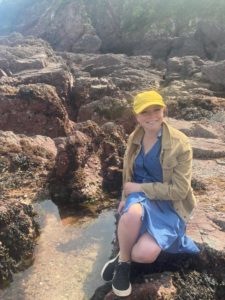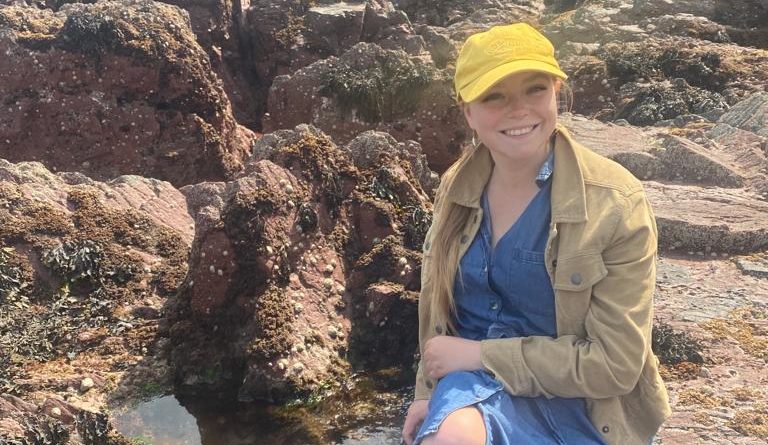Our world-leading marine research underpins a wide range of undergraduate and postgraduate programmes. In our MSc Graduate in Focus series we look at the achievements of our MSc graduates who have excelled in conservation around the world since studying with us. Today we chat with Ella Clark, MSc Conservation Science and Policy graduate, who is now working as an Outdoor Learning Officer for the Ernest Cook Trust and as an Exhibit Engager for the Wildfowl and Wetlands Trust, Slimbridge.

What have you been doing since leaving Exeter, and what are you doing now?
Since leaving Exeter, I spent a month in Australia and New Zealand visiting family and friends before coming back to England to try and find a house! Then I got stuck into volunteering (with CPRE and at WWT Slimbridge), and joined my local Environmental Action Group.
I am now lucky enough to have two conservation related jobs! One is as an Outdoor Learning Officer with The Ernest Cook Trust, an educational charity. Here, we lead school groups in educational activities in an outdoor setting, inspiring the next generation to have a connection with nature. Activities range from being curriculum based to more free-form forest school sessions. My second job is as an Exhibit Engager at WWT Slimbridge, conveying the amazing work of the WWT to the public in, hopefully, a fun and engaging way. I also run activities such as science shows and pond-dipping.
Why did you choose this career? And what do you enjoy most about your work?
I chose this career as, during my Master’s, I realised how vital science communication is in Conservation. You can be exceedingly clever, but unless you can convey your knowledge and, equally as importantly, enthusiasm, to other people, then the buck stops with you.
I most enjoy getting to work outside everyday and how rewarding it is to see children develop a connection to nature. Some children start a session being very unsure about being outside in nature, and usually finish feeling much more at peace with themselves. It is this that should inspire them to then look after our world. Seeing the natural world through a child’s eye is also very rewarding.
What did you enjoy most about your programme/the University and what was the biggest highlight?
The biggest highlight was our Kenya field course, which was truly a once-in-a-lifetime experience. Aside from that, meeting incredible, likeminded people that I am lucky to call friends.
Why did you choose to study this course?
I had done BSc Zoology at the University of Bristol, and the Conservation units had always been my favourite. To me, it seems like the most worthwhile thing anyone could study in the current climate. I chose the Policy variation as this was an area of the field that I didn’t know much about, but I knew was very important and wanted to explore further.
What skills and experiences have been most useful for your career?
All the factual skills I learned have been incredibly useful, especially ID skills. Aside from that, I have found the experience of working with communities and people in the industry to be quite a sought after skill, this is something I got to experience as part of my research project.
What advice would you give to a current student who wishes to pursue your career?
As with all Conservation jobs, volunteering and persistence is key. I also found that for specific areas I knew I was interested in, such as working with schools doing environmental education, society’s can be amazing at filling gaps in your course.
What are your plans for the future?
As long as I work in this industry I think I will be happy! I know how extremely lucky I am to do a job that I genuinely enjoy. Whether in the future I stay in the public engagement side of conservation, or move to working on conservation projects, I know that I will try and inspire other people in any way I can.

